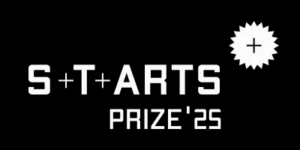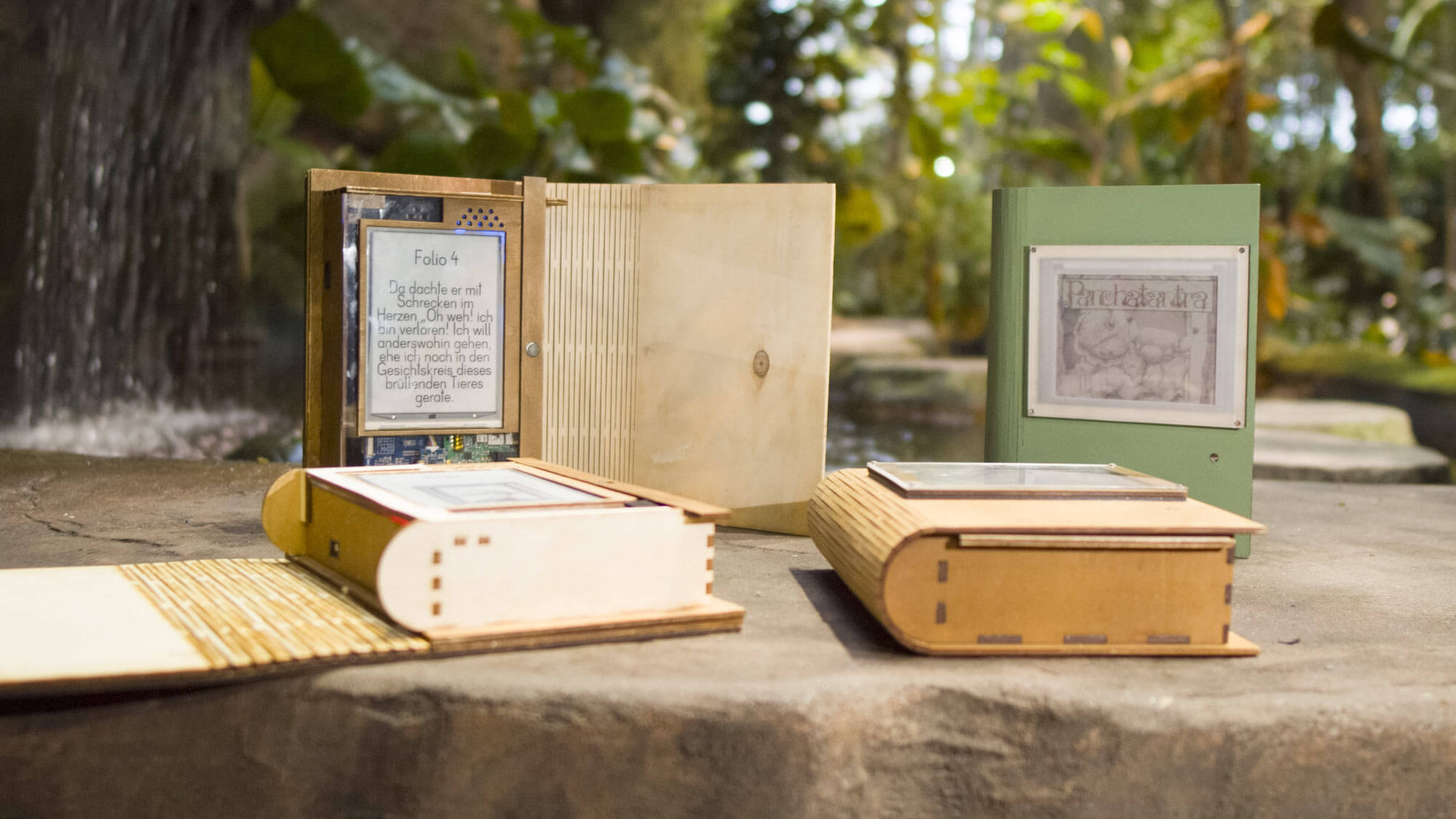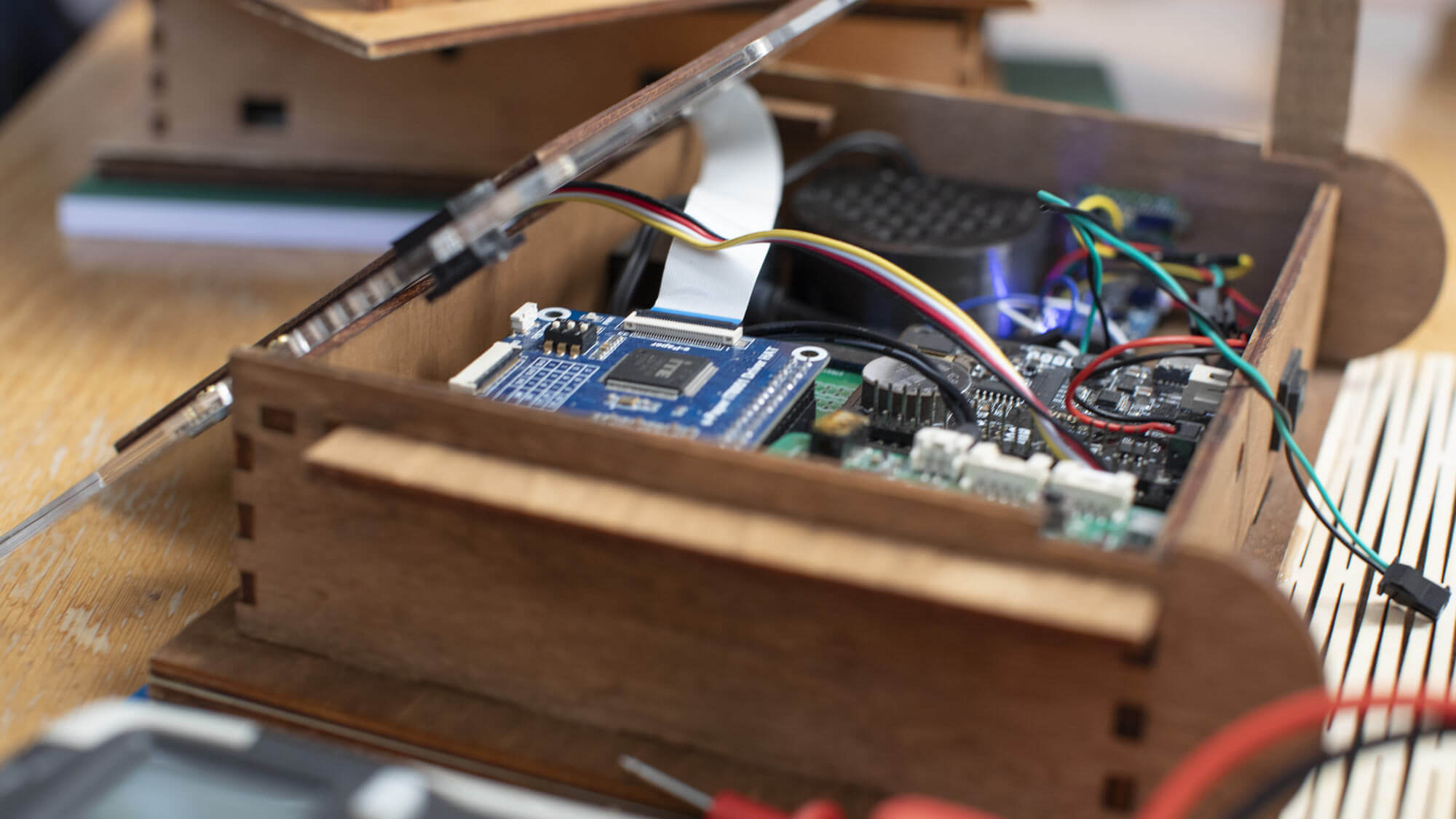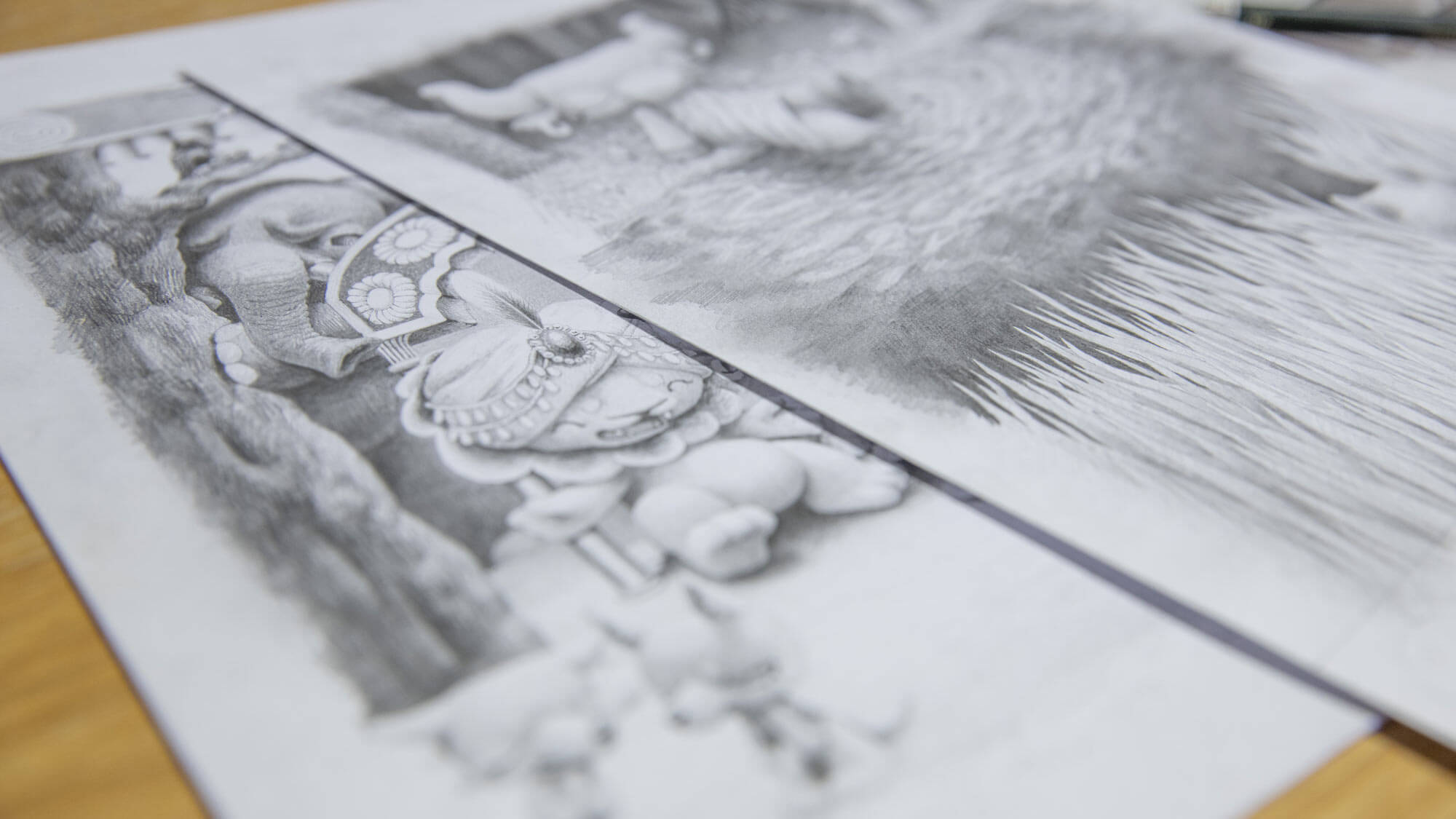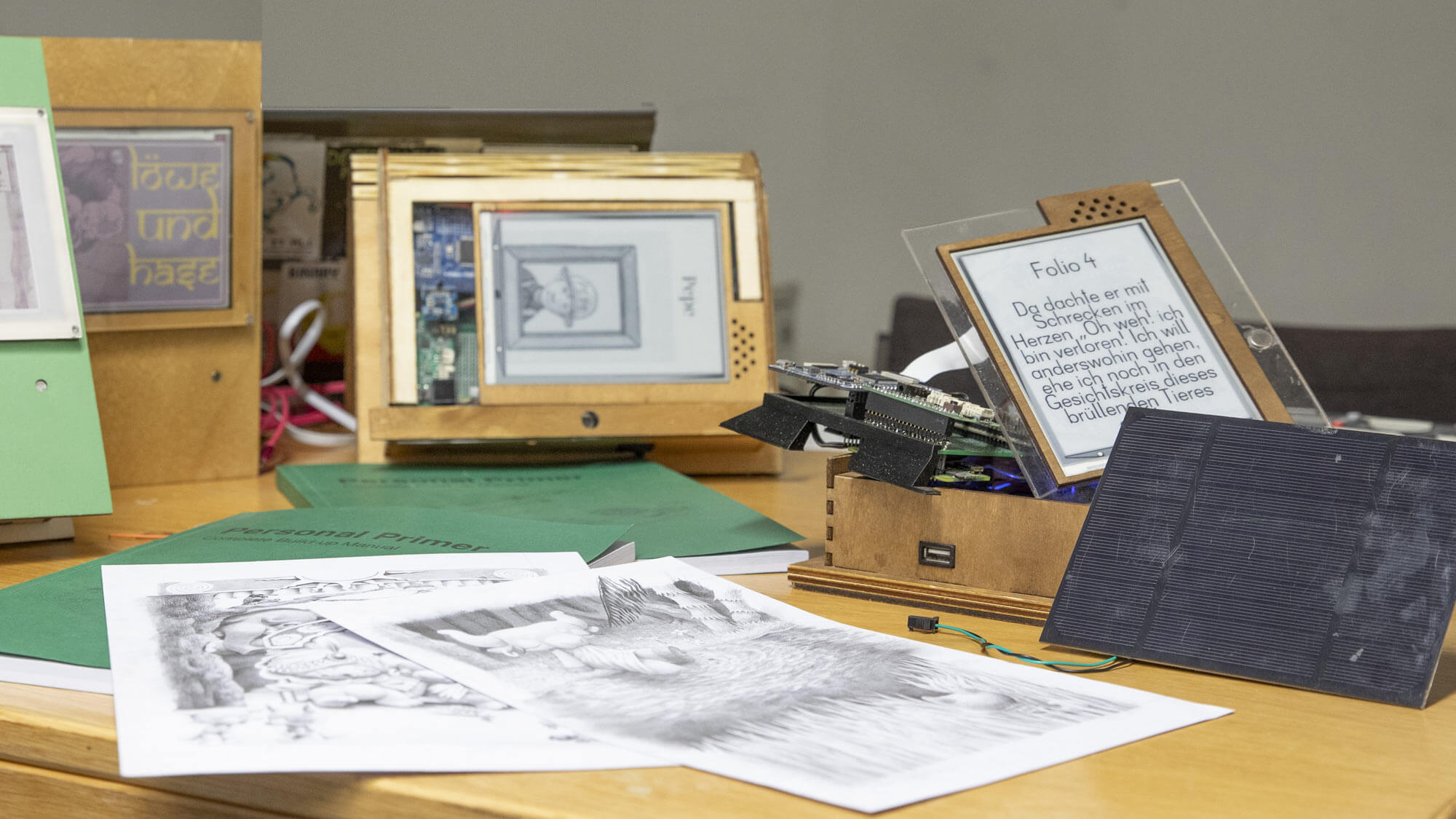Nomination
At the beginning, there was a book about a book-like, AI-embedding educational instrument: Neil Stephenson’s science fiction coming-of-age novel The Diamond Age: Or A Young Lady’s Illustrated Primer. Then, a decision was made to invest time and energy into the realization of Stephenson’s proposal. In the five years since the roadmap to such an idealized Bildunginstrument was published in the article “After smartphone: Towards a new digital education artefact”, the DigiEduBerlin team has been exploring diverse paths how to make the ideas in the primer reality. Many prototypes emerged and were lost in the process. At least four different codebases were deployed, experimented with, and refactored, and more than dozen academic papers have been peer-reviewed and published.
Currently, we have four prototypes that satisfy 11 out of the 23 roadmap properties: embooked, unique, adaptable, modular, circadian, habit-disrupting, multimodal, speech-based, narrative, online-offline, and monotasking. The concept of human-machine peer learning (HMPL), where a human learns from the machine (e.g. reading, foreign language) at the same time as the machine learns from the human (e.g. speech recognition), is deployed in the book-like artefact ready to narrate wisdom of ancient India.
Credits
Major contributions: Nikoloz Kapanadze, Hyungjoong Kim
Audiotext recordings: Astrid Kraniger, Hibiki Ishijima, Dorothea Mueller, Jung Hsu, Iolanda Maitreya, Lia Miranda, Özcan Ertek, Jens Tiemann, Zihern Lee, Fedor Kosoy
Design modifications: Victor Schmidt
Panchatantra illustrations: Taro Usami
Text-to-speech model training: Pierre-Louis Suckrow
Code prototyping: Paul Seidler
Video: Jens Tiemann
Soldering & solar-related: Orlando Helfer, Kuntay Seferoglu
Inspiration, moral & administrative support: professors Christa Röber, Alberto de Campo, Klaus Gasteier, Albert Lang, Norbert Palz, Kirsten Reese, Charles Tijus as well as Christian Schmidts, Helena Erlenbach, Julia Wärmers, Zihern Lee, Lucia Lalita, and Professor Joachim Sauter (in memoriam), Neal Stephenson
With support from: Berlin University of the Arts; Einstein Foundation, Einstein Center Digital Future; Cornelsen Verlag; City of Berlin; Stifterverband; Berlin Open Lab; Chaos Computer Club e.V.–Jugend hackt
Biographies
Daniel Devatman Hromada (SK) is a junior professor for Digital Education affiliated to both Einstein Center Digital Future (ECDF) as well as Berlin University of the Arts (UdK), with doctoral degrees in cybernetics and cognitive psychology. He received a Prix Ars Electronica 2013 Honorary Mention in the category “Digital Communities” for his project kyberia.sk.
DigiEduBerlin is a team composed of past and present assistants, students and volunteers who helped to make the Primer real. Most of the members are alumni or students of the UdK study programs Art & Media, Design & Computation, or Visual Communication.
